
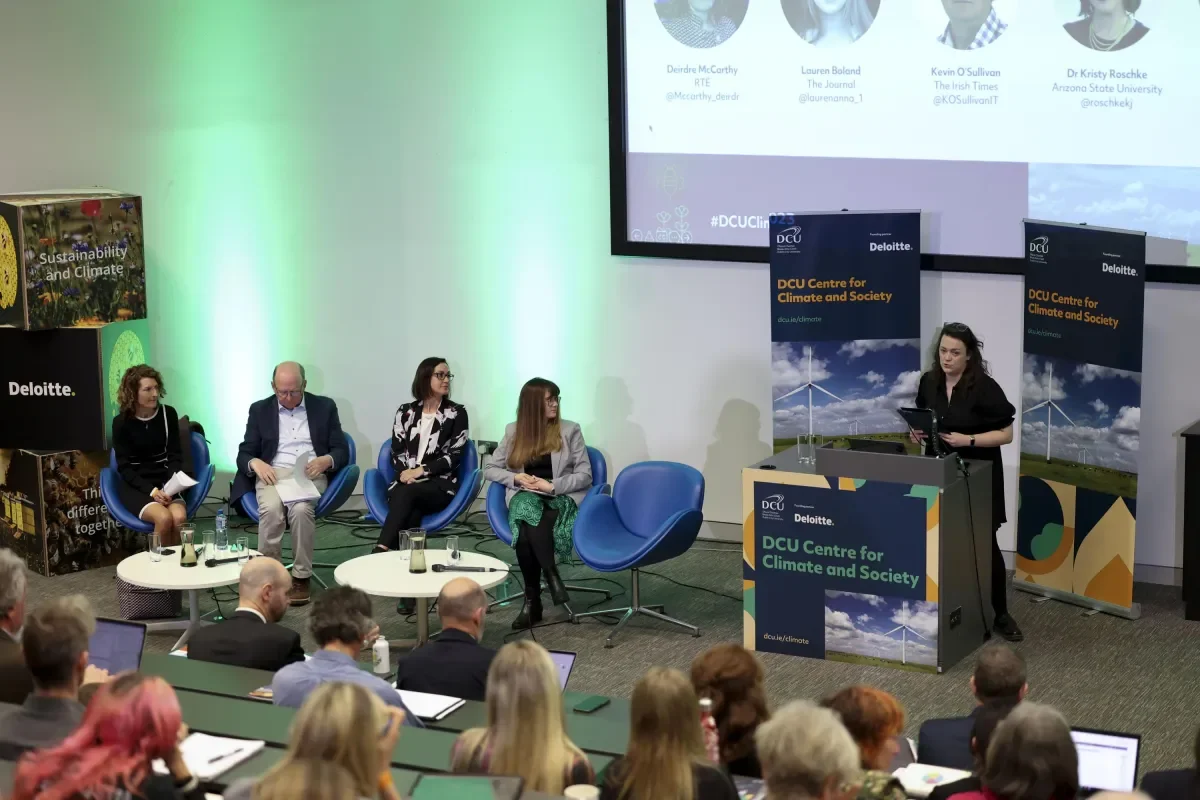
Centre for Climate and Society Annual Conference
Rewild & Renew: How can Ireland turn the tide on climate change and biodiversity loss?
The third annual DCU Centre for Climate and Society conference took place on April 26, 2023 on the DCU St. Patrick’s Campus, and featured keynote speakers Eamon Ryan T.D., Minister for Environment, Climate and Communications, and Minister for Transport, and Eoghan Daltun, rewilder, farmer, and author of An Irish Atlantic Rainforest: A Personal Journey into the Magic of Rewilding.

Dr David Robbins, Director of the DCU Centre for Climate and Society
Dr David Robbins, Director of the DCU Centre for Climate and Society and Associate Professor in the School of Communications, welcomed the audience to the third annual Centre conference. He said the conference was an opportunity to support each other in caring about the climate and biodiversity, that “everyone is needed and welcomed”. He said that the media, policy-makers and businesses often treat climate and biodiversity separately, even though they are intrinsically linked. “Climate change leads to biodiversity loss and biodiversity loss increases climate impacts.” The recording of Dr Robbins’ remarks can be viewed here.
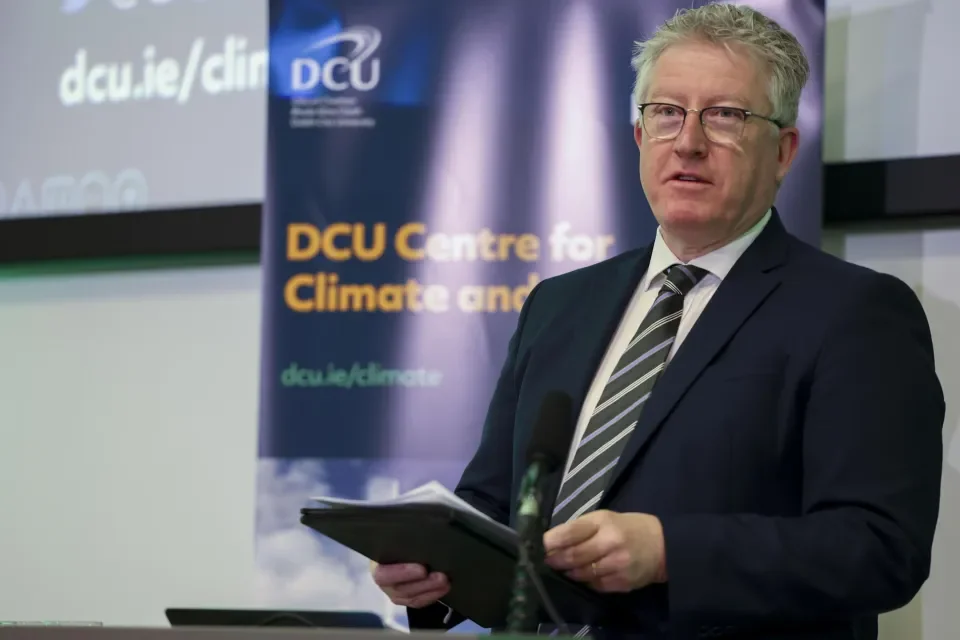
Professor Daire Keogh, President of DCU
Professor Daire Keogh, President of DCU, expressed his thanks to the diverse group of participants attending the conference. He said this “broad church of guests” demonstrates the importance of the work of the university. “Universities like ours have a huge part to play, but the impact of universities is not just what happens in our lecture rooms or labs, but it is through friends, through engaged partners, through yourselves. All of us have a huge role to play in preparing society for the future.” The recording of Prof Keogh's remarks can be viewed here.
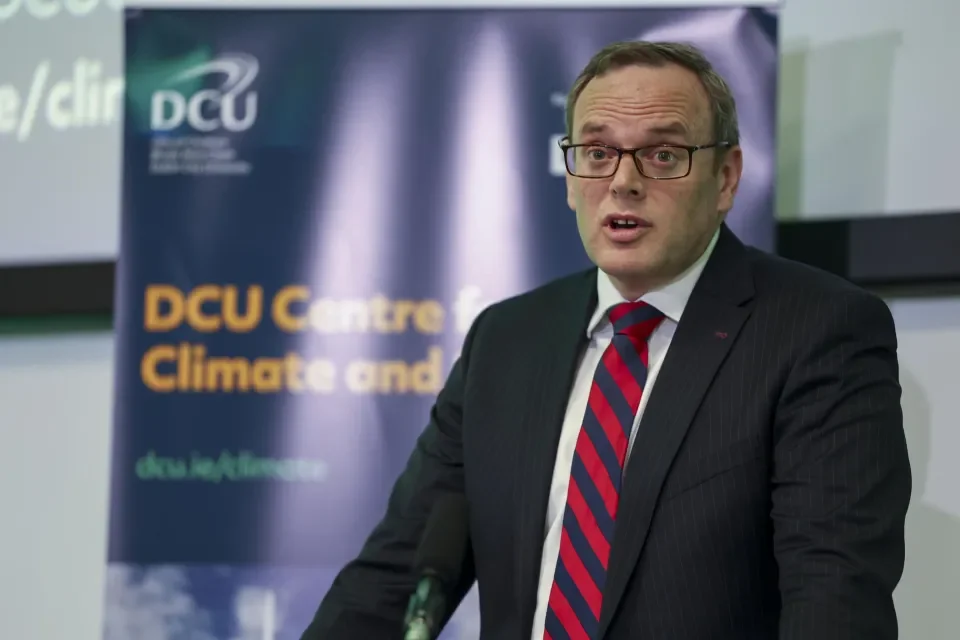
David Kinsella, Head of Risk Advisory, Deloitte Ireland
David Kinsella, Head of Risk Advisory at Deloitte Ireland, founding partner of the Centre, noted the importance of collaboration amongst different sectors of society to engage effectively in climate action. “Progress towards solutions requires collaboration across the entire ecosystem of private and public sector, as well as institutions and government organisations, across industries and across sectors, bringing together a community of people like the people we have in this room today.” He said that business leaders need to educate not just themselves on these issues, but also employees and clients. Business leaders have the possibility to set and deliver ambitious goals in order to make “nature positivity” a core business benchmark, he said. The recording of the address by David Kinsella can be viewed here.
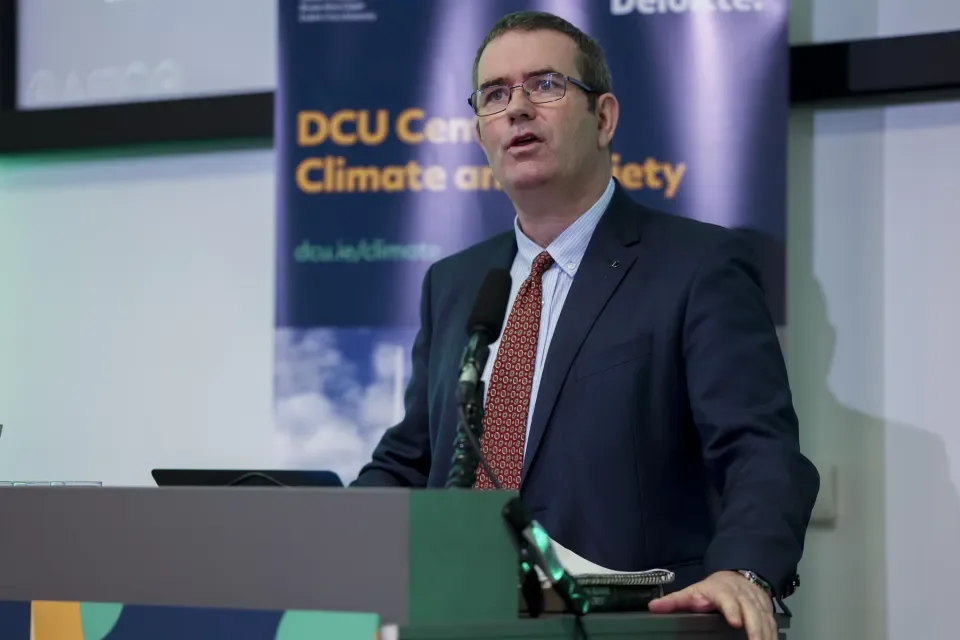
Professor Derek Hand, Executive Dean of the Faculty of Humanities and Social Sciences
Professor Derek Hand, Executive Dean of the Faculty of Humanities and Social Sciences, introduced keynote speaker Eoghan Daltun. "What is important about Eoghan’s work and way of living is that it is about doing,” he said. He noted that Eoghan Daltun, with his work, was able to bring together activism and care, as well as the idea of re-making. In particular, he pointed out the importance of “rewilding”, a concept which asks us to rediscover the world through a new lens away from created aesthetic theories. The recording of Prof Hand’s introduction can be viewed here.
Keynote Address - Eoghan Daltun
The recording of the keynote address by Eoghan Daltun can be viewed here.
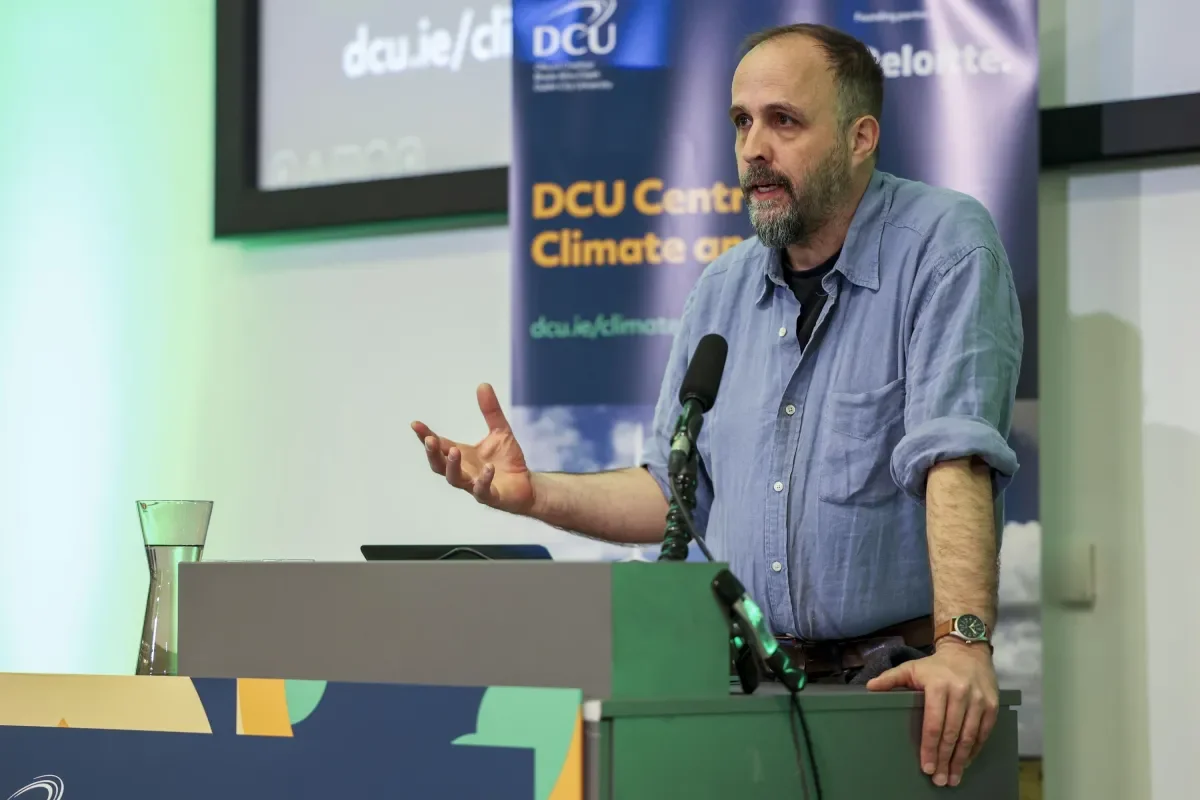
Eoghan Daltun, rewilder, farmer, sculpture conservator, and author started his keynote address by saying, “it’s hard to think of anything in this time in which we find ourselves more important than rewilding.” When he moved to his farm in the Beara Peninsula in West Cork in 2009 the land was “essentially in ecological meltdown”. As he began the process of rewilding, the woodland floor erupted with wildflowers, trees started to spring up everywhere, and insects, pollinators, birds and rare mammals returned.
“There’s been this incredible renaissance within the wood. And the thing about it is that it really didn’t take much. It wasn’t complicated. The ecology was very, very straightforward. You just prevent the overgrazing and you get rid of the non-native invasive plant species and then nature will do the rest.”
Eoghan said that the rebirth he witnessed on his farm had a downside, in that he became aware of just how bad things are practically everywhere else. He said that Killarney National Park - “Ireland’s most important remaining fragment of native forest” - is in a terrible state, similar to how his farm was. But while his farm has come “roaring back with life” the State managed park has continued to die away. And it’s not a unique situation, with wild nature nearly impossible to find in Ireland. He said that we need to make space for nature to return, which rewilding is about.
Rewilding has many benefits, including carbon sequestration and bringing life back to rural areas through tourism and jobs. But the greatest benefit, he concluded, was that “we could end up living far more enriched, fulfilled lives that are full of diversity and wonder and beauty, rather than the boring, domesticated, banal landscape that is Ireland today”.
Panel 1 – Covering climate and biodiversity: challenges and opportunities
The recording of Panel 1 can be viewed here. The panel was chaired by Dr Dawn Wheatley, Centre member and Assistant Professor in the School of Communications.
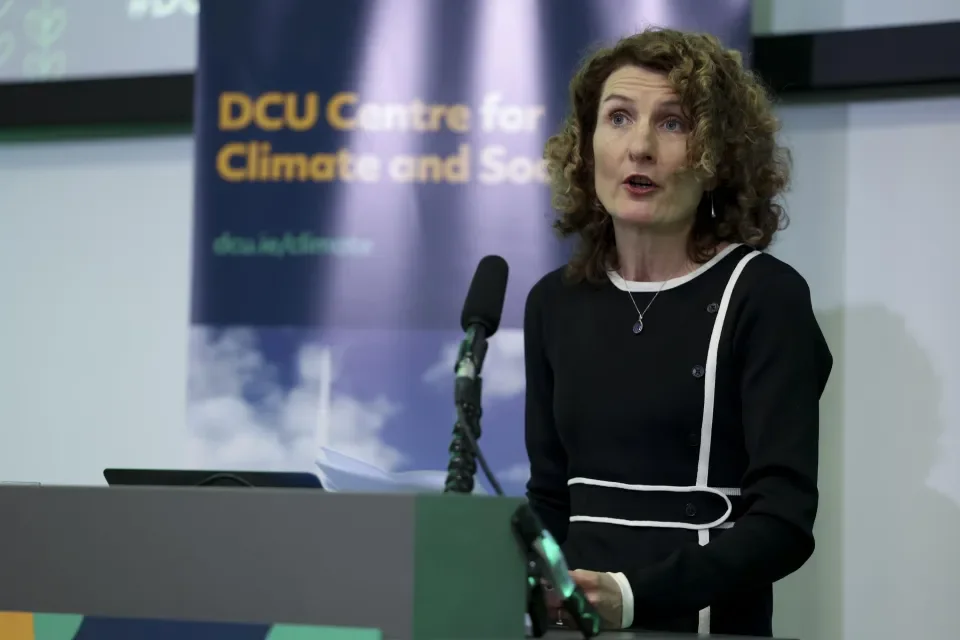
Deirdre McCarthy, RTÉ News & Current Affairs
Deirdre McCarthy, Managing Director, RTÉ News & Current Affairs, said that RTÉ is focused on finding different ways to tell the climate change story and have added another question to the ‘who, what, where, when, why and how of journalistic questions’: what now? This will help frame the discussion of climate change and biodiversity loss in a positive, meaningful way for the public and give people a sense of agency. There is also a need for climate literacy training for reporters and editors and to embed climate coverage across all desks. She said that “we need to move beyond covering climate change related stories as they happen and develop ways to lead and provide comprehensive coverage in day to day news” 365 days a year.

Lauren Boland, The Journal
Lauren Boland, Reporter with a focus on climate at The Journal, said that a challenge is pushing back against lies and misinformation about climate change. She said that in any stories she writes about climate change she always tries to include why it matters, especially if individual sacrifice might be involved. “It’s easy to get lost in the small details but it’s important to zoom out and give readers the context of why we’re having these discussions, what we stand to lose if we don’t take action, and what we stand to gain if we do.”
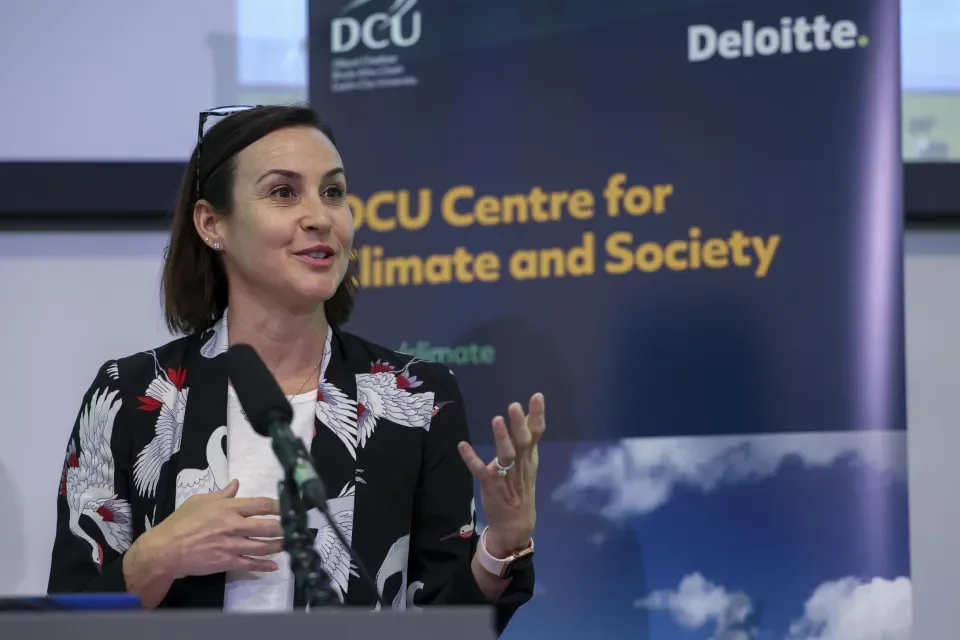
Dr Kristy Roschke, Walter Cronkite School of Journalism & Mass Communication
Dr Kristy Roschke, Managing Director of the News Co/Lab at the Walter Cronkite School of Journalism and Mass Communication, Arizona State University, said that when it comes to covering climate and biodiversity loss, it’s important for the media to focus on impact, and to be as local as possible. People will understand and react when something is going to impact their daily lives. Dr Roschke said that not all media outlets have the luxury of having environment or climate change reporters, so there’s work to be done on training journalists on research methods and how to find experts, so they can cover these issues responsibly and accurately. She also said that it’s important to explain the expertise of the people the media call upon when reporting on these issues.
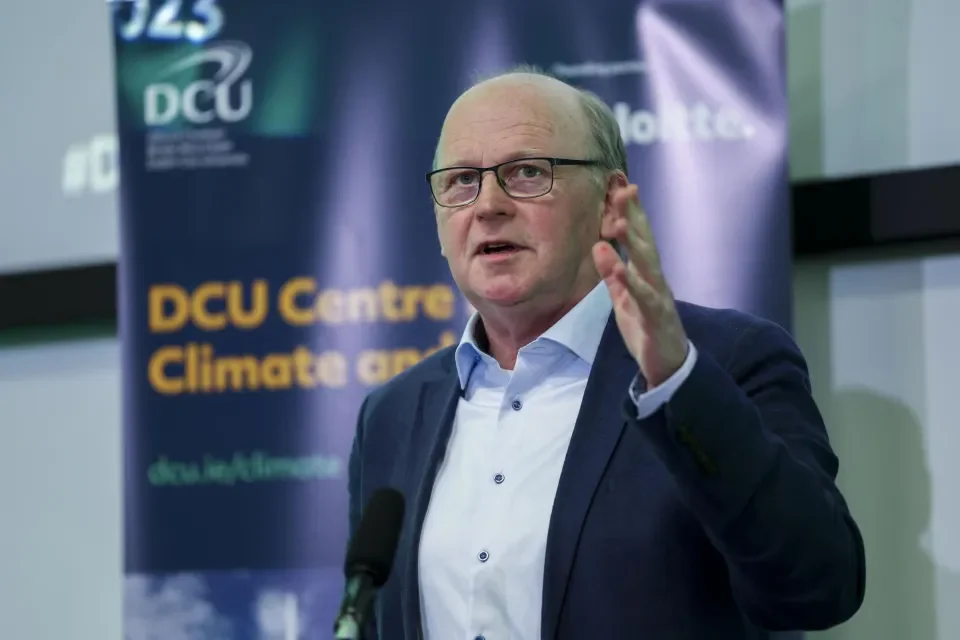
Kevin O’Sullivan, The Irish Times
Kevin O’Sullivan, Environment and Science Editor at The Irish Times, noted how biodiversity did not have enough coverage in the media in Ireland. He pointed out the complexity of the challenge our planet is facing, suggesting the media can play a much bigger role in strengthening the response to the “poli-crisis” we all are facing. The climate crisis, biodiversity loss, water pollution, and the energy crisis are all inter-connected issues we are all conscious of, yet we have made little progress on them. Having broader coverage of these environmental issues is essential and the key to crafting more effective solutions, he said.
Panel 2 – Policy-making in the dual climate and biodiversity crises
The recording of Panel 2 can be viewed here. The panel was chaired by Dr Diarmuid Torney, Centre Co-Director and Associate Professor in the School of Law and Government.
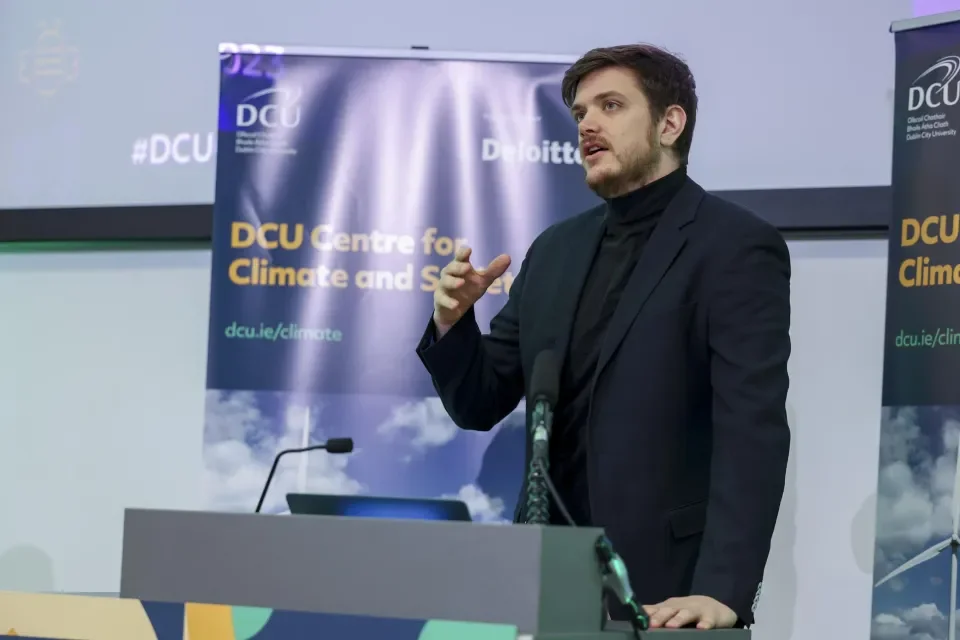
Dr Johannes Karl, DCU School of Psychology
Dr Johannes Karl, Assistant Professor in the DCU School of Psychology, noted that generally all human beings like nature, but that not all people behave in a way that is environmentally friendly. He suggested that it is all about communication and values. People all behave according to different value systems, so it is essential to note that as the climate and biodiversity crises are a global phenomenon, people all belong to a wide range of different contexts and come with their own individual experiences. Policy-making needs to take into account the plurality of contexts in which policies are shared, interpreted, and understood, in order to be more effective in engaging people in climate and biodiversity action.
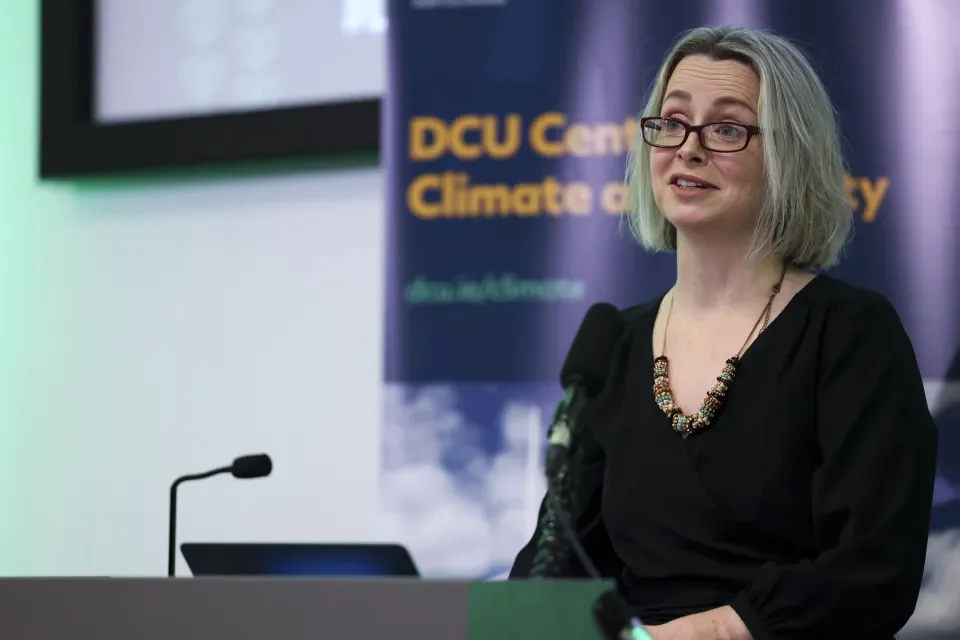
Dr Aoife O’Grady, Zero Emission Vehicles Ireland
Dr Aoife O’Grady, Head of Zero Emission Vehicles Ireland, Department of Transport, pointed out the difference between climate action plans and the reality. She said that behavioural change in terms of transport is very hard, and therefore the policy-making and the policy delivery are difficult. For instance, she mentioned that in 2020, despite travel curtailment due to COVID-19, reduction in emissions was less than 17%. Finding a balance between short-term delivery and long-term systemic change presents some challenges. Electrification of fleets by 2030 will play a huge part in carbon abatement in Ireland, however the total electrification of vehicles requires a huge amount of rare earth resources which are not sufficient, raising a global biodiversity issue.
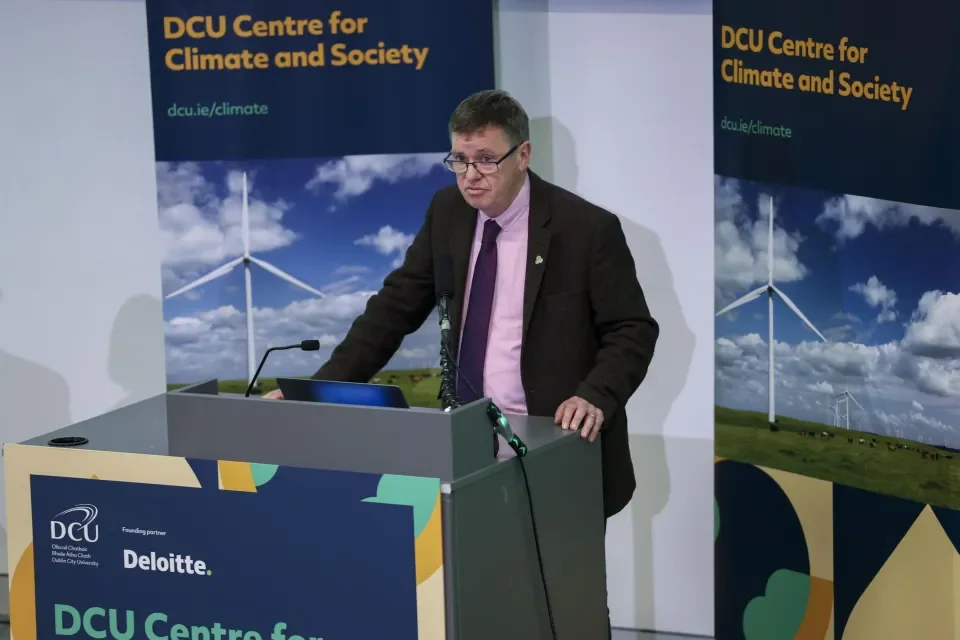
Dr Liam Lysaght, National Biodiversity Data Centre
Dr Liam Lysaght, Centre Director at the National Biodiversity Data Centre, noted how public policy around biodiversity has increased over the last few years. However, despite the policy response, he said there is little evidence that biodiversity loss and climate change are being decelerated or stopped. Very often the terms ‘climate’ and ‘biodiversity’ are used interchangeably, but we should put much more attention on these two different and equally important environmental aspects. The risk is that the climate action happening might not include specific biodiversity targets, resulting in an increase in biodiversity loss. He then suggested biodiversity policy be more science-based, which would be able to measure through data how effective the implemented policy is.
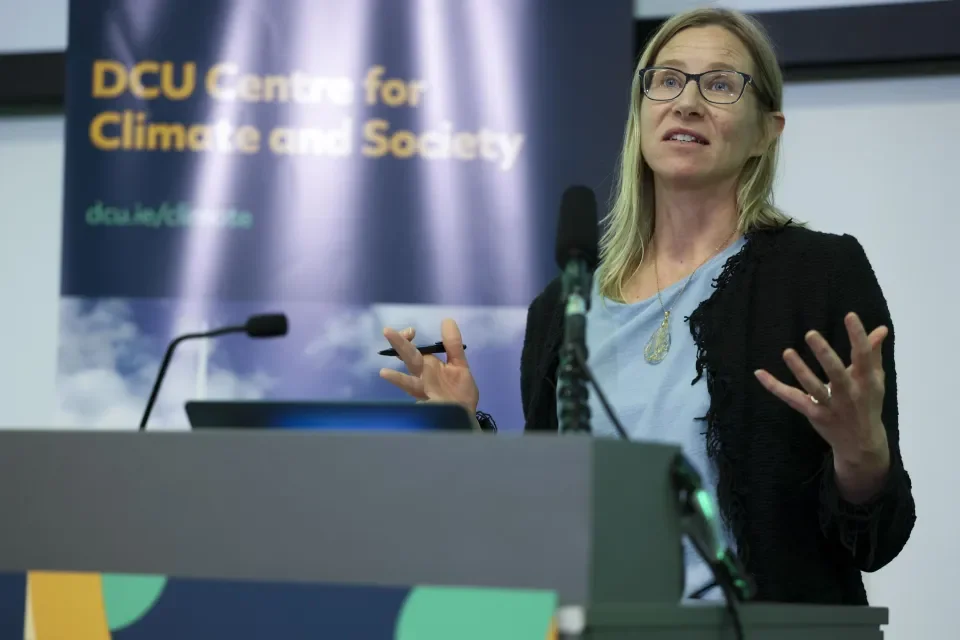
Karen Ciesielski, Irish Environmental Network
Karen Ciesielski, CEO at the Irish Environmental Network, said the participation of society as a whole in public debates and in policy-making is essential to build a path towards positive change. Civil society organisations play a significant role in developing and advancing sustainable policy, thus a collaborative approach is key to achieve the balance between the three pillars of sustainable development, which encompass social, environmental, and economic aspects. “Policy-making processes must be open, inclusive, and transparent, with clear and widely accessible information sharing, and also consistent frameworks for participation and engagement,” she said.
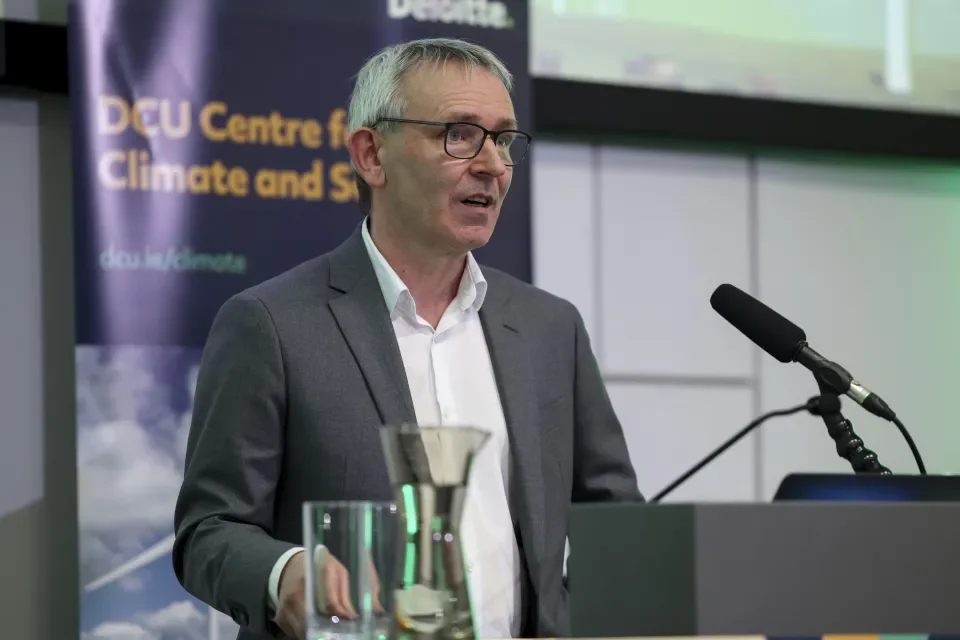
Professor John Doyle, Vice President for Research at DCU
Professor John Doyle, Vice President for Research at DCU, introduced Eamon Ryan, T.D., Minister for Environment, Climate and Communication, and Minister for Transport. He noted the Minister’s lifelong environmental activism and his profile in green politics, emphasising the significance of this in tackling the challenges Ireland is facing. The recording of Prof Doyle’s introduction can be viewed here.
Keynote Address - Minister Eamon Ryan
The recording of the keynote address by Minister Eamon Ryan can be viewed here.
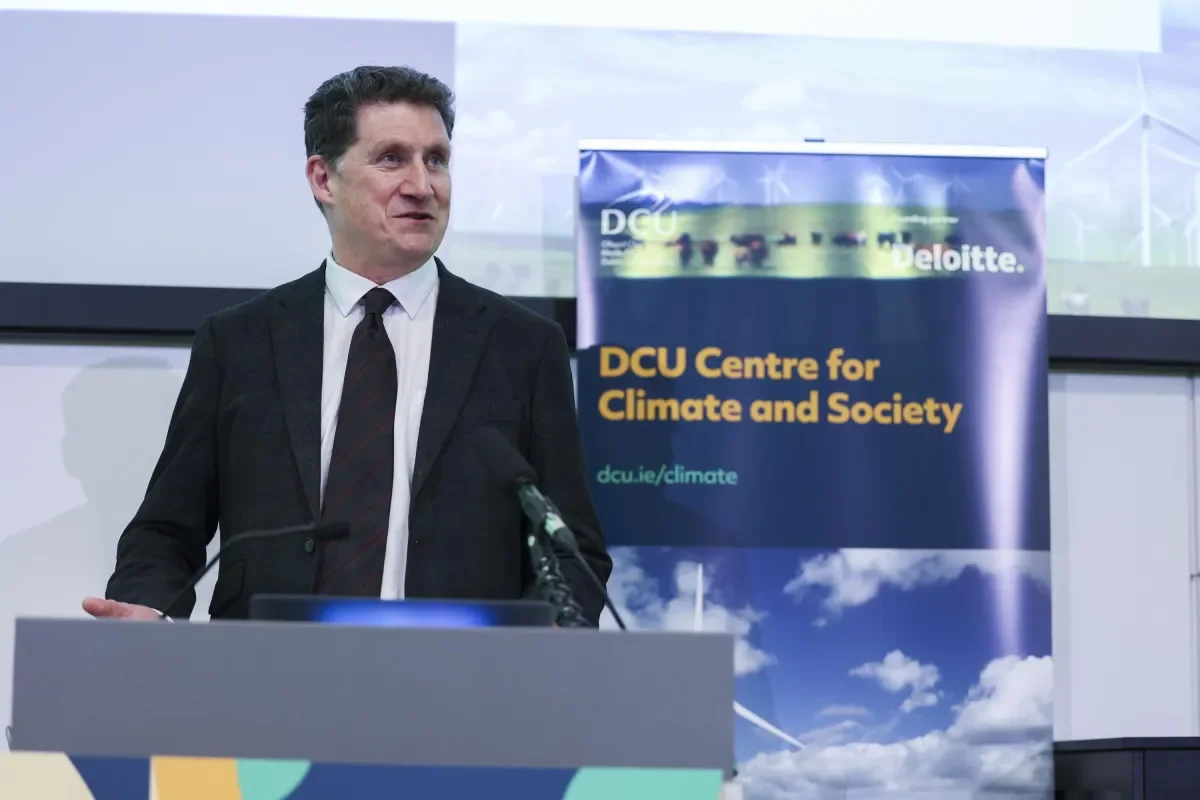
Eamon Ryan, T.D., Minister for Environment, Climate and Communications, and Minister for Transport, gave a wide-ranging and at times personal address. He spoke of studying ecology as a secondary school student and how it raised his awareness of interconnection - to each other, with nature, and of the natural systems within the natural world.
He called the ongoing Land Use Review “the most important project within our Programme for Government” and said that it needs to advance four things in particular: rural development, reducing carbon emissions, stopping the destruction of nature and restoring biodiversity, and stopping and reducing the amount of water and air pollution.
“To make this leap we need to make, to restore nature and to stop runaway climate change, every place matters, every person matters, and the scale of the change we need means it won’t work if we leave any section of society behind. It does have to be a just transition.”
Minister Ryan spoke at length about both forestry and farming. He said that he expects to see forestry in Ireland expand to 30% of land use, restoring biodiversity in the process, and that payments for farmers for nature-based solutions will offer a guarantee of their livelihoods and an alternative to relying on international commodity markets. He said that “if you want to be a climate hero, if you want to be part of the environmental movement which is determining solutions” forestry and farming programmes were the ones to pursue.
He concluded his talk by saying that “more than anything else, we need to get the framing of this right… What’s going on in your School of Communications is as important as what’s going on in any school of science or technology or industrial development. It’s how we tell the story that’s going to determine whether we can make the leap.”
Panel 3 – Corporate responses to climate change and biodiversity loss
The recording of Panel 3 can be viewed here. The panel was chaired by Dr Aideen O’Dochartaigh, Centre member and Assistant Professor in the Business School.
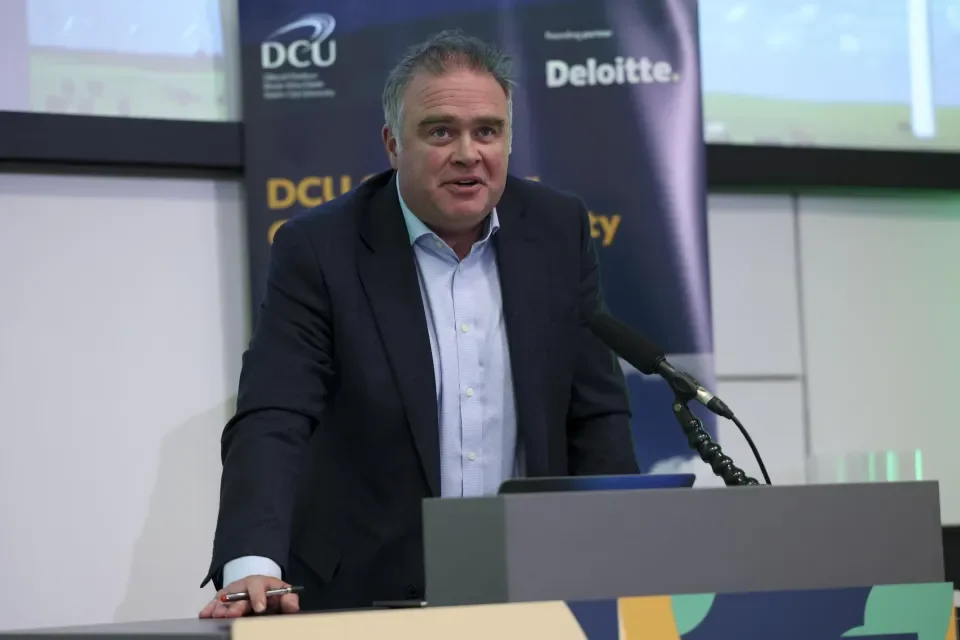
Dr John MacNamara, Bord na Móna
Dr John MacNamara, Corporate Sustainability Lead at Bord na Móna, pointed out the degree of lacuna on the side of data reporting and about measuring the impact of business on nature and vice versa. He noted however the shift of Bord na Móna toward a more green approach over the last few years which embraced three main pillars: the circular economy, remediation of the pit lands, and renewable energy of the business.
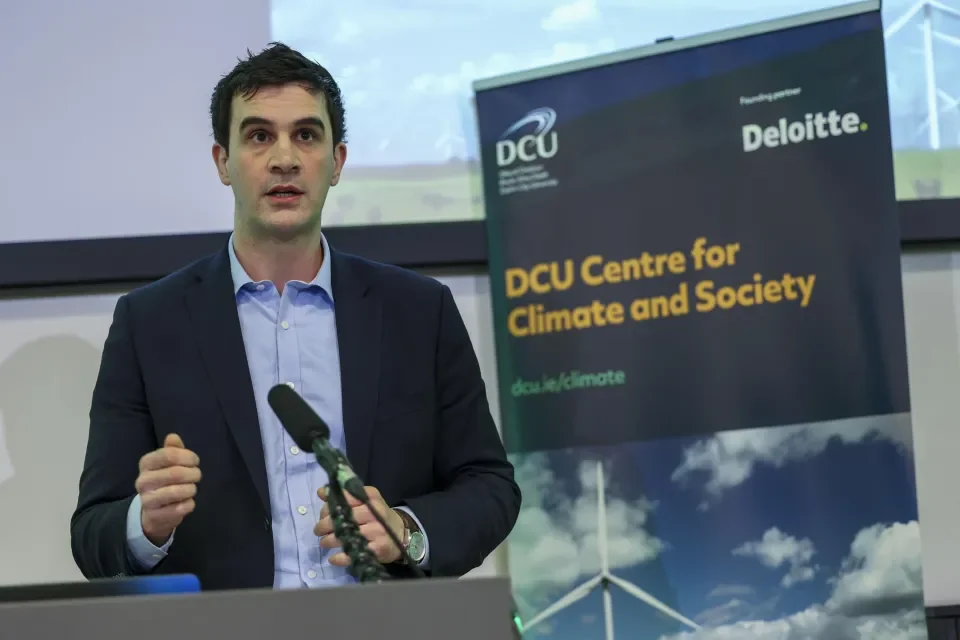
Marc Aboud, Deloitte Ireland
Marc Aboud, Sustainability Risk and Regulatory Lead with Deloitte Ireland, emphasised the importance of understanding the complexity of the rapidly evolving regulatory landscape around climate and biodiversity and what that means for businesses. At the moment, organisations do not have all the information to understand how their business impacts nature and how nature impacts their business, which means that corporates generally know that something has to be done, but not where to start. The lacuna in how to report and measure nature and biodiversity loss is one of the factors explaining what makes regulations so difficult to understand and comply with. Further, the regulatory landscape has so far mainly focused on climate and societal issues, leaving broader environmental matters like biodiversity aside.
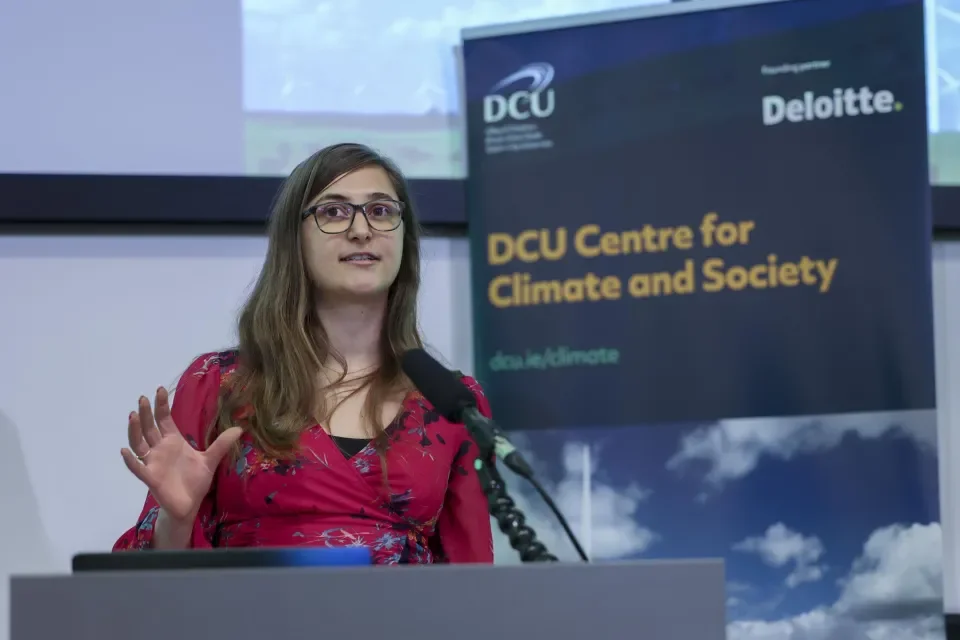
Dr Fabiola Schneider, DCU Business School
Dr Fabiola Schneider, Assistant Professor in the DCU Business School, noted that the biggest drive at the moment is regulation. She introduced the EU Green Taxonomy, an initiative set by the European Union which aims at defining, through data, what makes an economic activity green. This initiative has the potential to play a huge part in defining how to report and measure nature and biodiversity loss, making the regulatory landscape more accessible for businesses when it comes to complying with sustainability regulations. The EU Green Taxonomy, in defining its six main objectives, recognises biodiversity on the same level as climate. However, biodiversity poses a certain degree of challenge as it cannot be measured through standard global data. Specific local factors need to be considered, making it difficult to come up with general indicators.
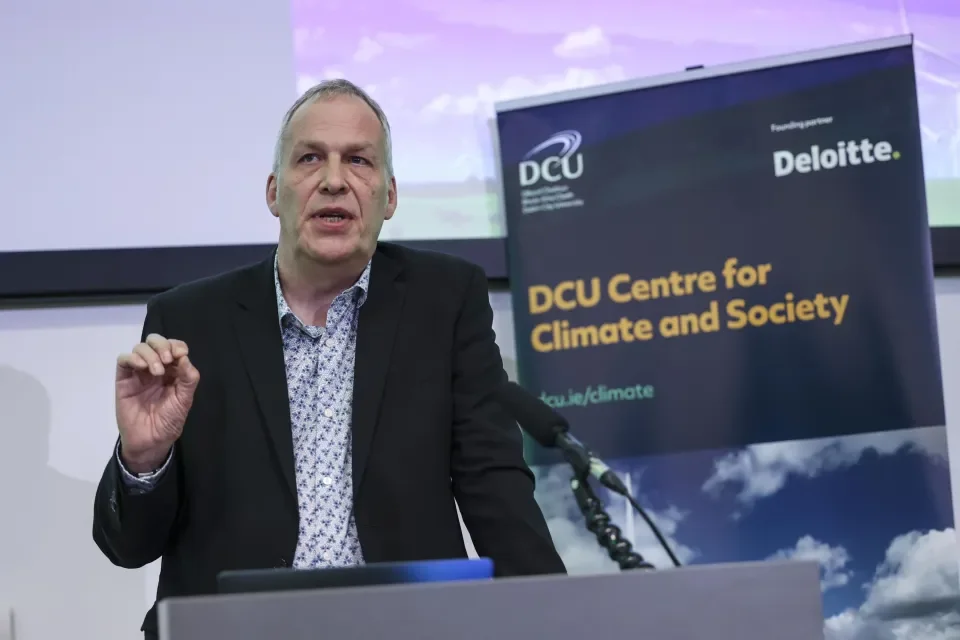
Paul Harris, Bank of Ireland
Paul Harris, Sustainable Product Innovation Lead at the Bank of Ireland, said he believes that the corporate response to climate change and biodiversity loss is inadequate, suggesting the need for a more business-friendly terminology to achieve nature-positive targets. For instance, he noted that terms such as ‘nature’ and ‘biodiversity’ are considered too abstract for corporates, whereas adopting business language would translate into a more concrete engagement in action on the side of businesses and financial institutions. “In the last 50 years, we have lost 50% of our ecosystem. Businesses rely on goods and services provided by those ecosystems which are essential and irreplaceable. So ecosystem services have a significant economic value and present a material financial risk if they are degraded.” He noted that corporates do understand climate change and biodiversity loss, but they need to leave behind the scientific and ecological terminology in order to cope with such issues with a business lens that requires more concreteness.
Closing Remarks
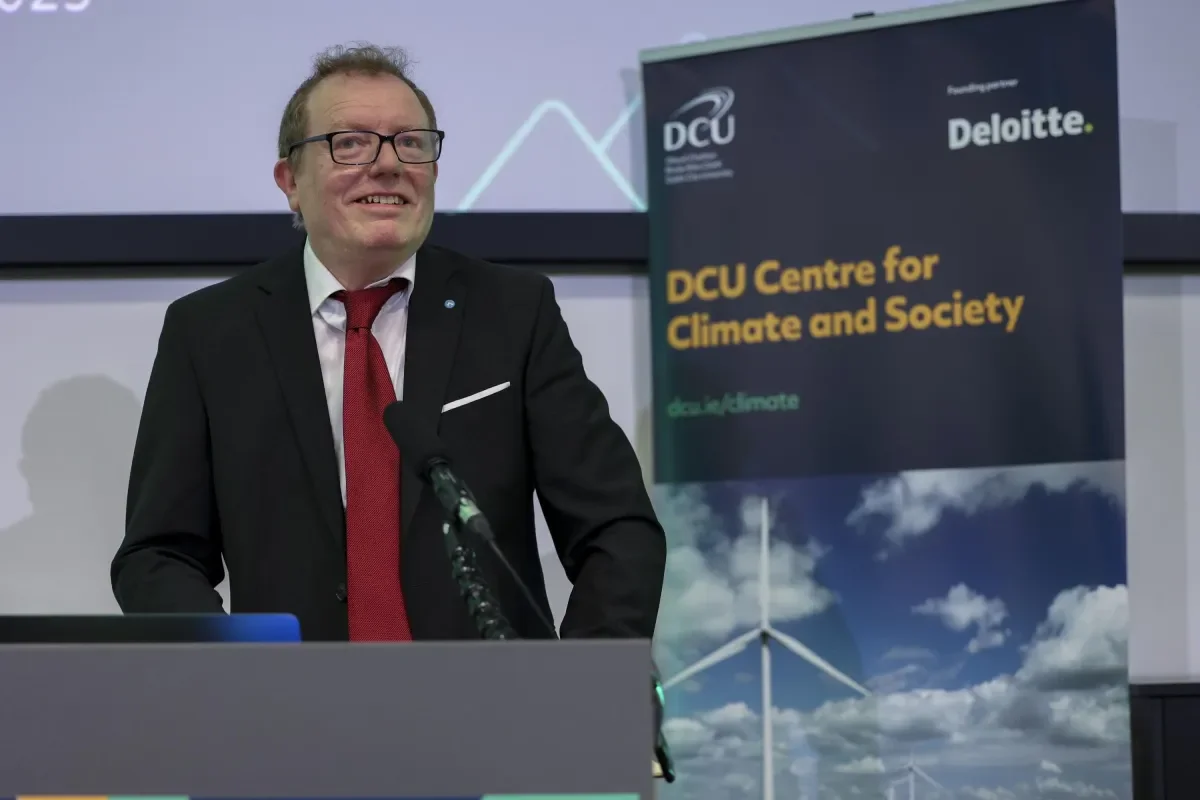
Professor Pat Brereton, Co-Director of the Centre and Professor in the School of Communications at DCU, used the closing remarks to start a reflection on the environmental challenges discussed during the conference. He encouraged dialogue, highlighting the importance of gathering and exchanging ideas, to try to connect across all the different sectors of society and disciplines. Conversation, and not preaching, he said, is itself a way to make a positive change for climate and biodiversity. The recording of the closing remarks can be viewed here.
